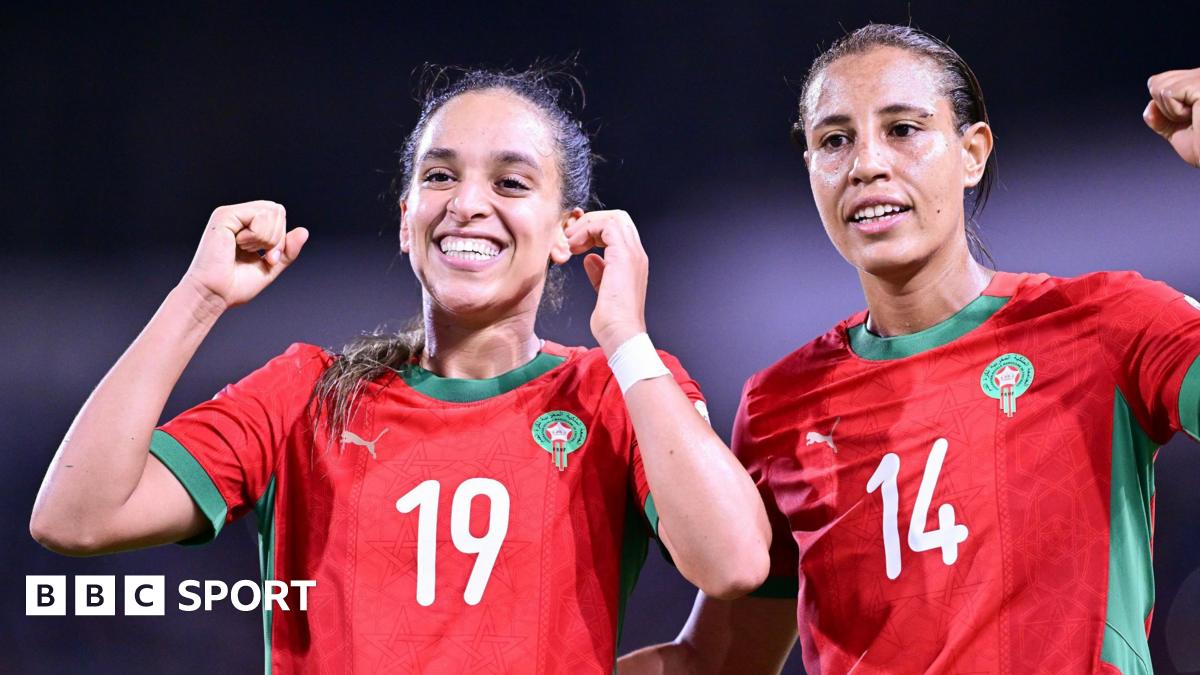The Women’s Africa Cup of Nations reached a dramatic crescendo in the semifinals, leaving fans on the edge of their seats. Nigeria came from behind to defeat South Africa 2-1, with Michelle Alozie netting
Did You Know
In Bhutan, they measure their country's success by Gross National Happiness, not GDP.
?
AD
a heart-stopping winner deep into stoppage time. This victory not only secured Nigeria’s place in the final but also marked an end to South Africa’s dreams of defending their championship title. The match was particularly poignant for Banyana Banyana, whose hopes were dashed further by the severe leg injury sustained by star player Gabriela Salgado during the match.
As the tournament unfolded, Ronnel Donnelly emerged as a beacon of hope for South Africa, showcasing her potential as a breakout star despite the team’s overall struggles. Her performances highlighted the depth of talent present in women’s football across the continent. The semifinal atmosphere was electric, matching the historical rivalry between the two teams. It underscored the rich narratives that surround African women’s football, where both youthful exuberance and seasoned experience collide on the pitch.
In a parallel semifinal encounter, Morocco triumphed over Ghana through a penalty shootout after a dramatic 1-1 draw, which sets the stage for an exhilarating final showdown against Nigeria. The matchup promises to be not just a clash of titans but a celebration of women’s sports, galvanizing support both locally and internationally. As Nigeria and Morocco prepare to battle for the coveted title, the stakes have never been higher, and the hearts of fans across the continent beat in unison, eager for a spectacle that transcends mere competition.
Q&A (Auto-generated by AI)
What is WAFCON and its significance?
The Women's Africa Cup of Nations (WAFCON) is the premier international women's football tournament in Africa, organized by the Confederation of African Football (CAF). Established in 1991, it showcases the continent's top national teams and promotes women's football development. WAFCON serves as the qualifying tournament for the FIFA Women's World Cup, making it crucial for teams aspiring to compete on the global stage. The tournament not only highlights athletic talent but also raises awareness of women's sports in Africa.
How has Morocco performed in past WAFCONs?
Historically, Morocco has had a mixed performance in WAFCON tournaments. They have qualified for several editions but have often struggled to advance deep into the knockout stages. However, in 2024, Morocco made a significant impact by reaching the final for the first time, showcasing their growth in women's football and benefiting from home advantage. This performance represents a turning point for Moroccan women's football, indicating improvements in training, support, and competitive spirit.
What strategies led Nigeria to the final?
Nigeria's success in reaching the WAFCON final can be attributed to several key strategies. Their strong offensive play, exemplified by Michelle Alozie's critical goals, coupled with solid defensive tactics, allowed them to outmaneuver opponents. The Super Falcons also demonstrated resilience, coming back in crucial moments, such as their stoppage-time victory against South Africa. Additionally, Nigeria's experience in past tournaments has equipped them with the tactical acumen to handle high-pressure situations effectively.
Who are key players in the WAFCON 2024?
Key players in WAFCON 2024 include Nigeria's Michelle Alozie, who has been instrumental with decisive goals, and Esther Okoronkwo, emerging as a talisman for the Super Falcons. For Morocco, standout performances from their squad have energized the home crowd. South Africa's Ronnel Donnelly has also garnered attention as a breakout star, showcasing her skills against formidable opponents. These players not only contribute to their teams' successes but also elevate the tournament's competitive spirit.
What challenges do teams face in knockout stages?
In the knockout stages of WAFCON, teams face several challenges, including heightened pressure and the need for tactical adaptability. Matches are often more intense, with the stakes higher, leading to increased mental strain on players. Additionally, injuries can significantly impact team performance, as seen with South Africa's Gabriela Salgado. Teams must also manage fatigue, as they often play multiple matches in quick succession, requiring effective squad rotation and recovery strategies.


















